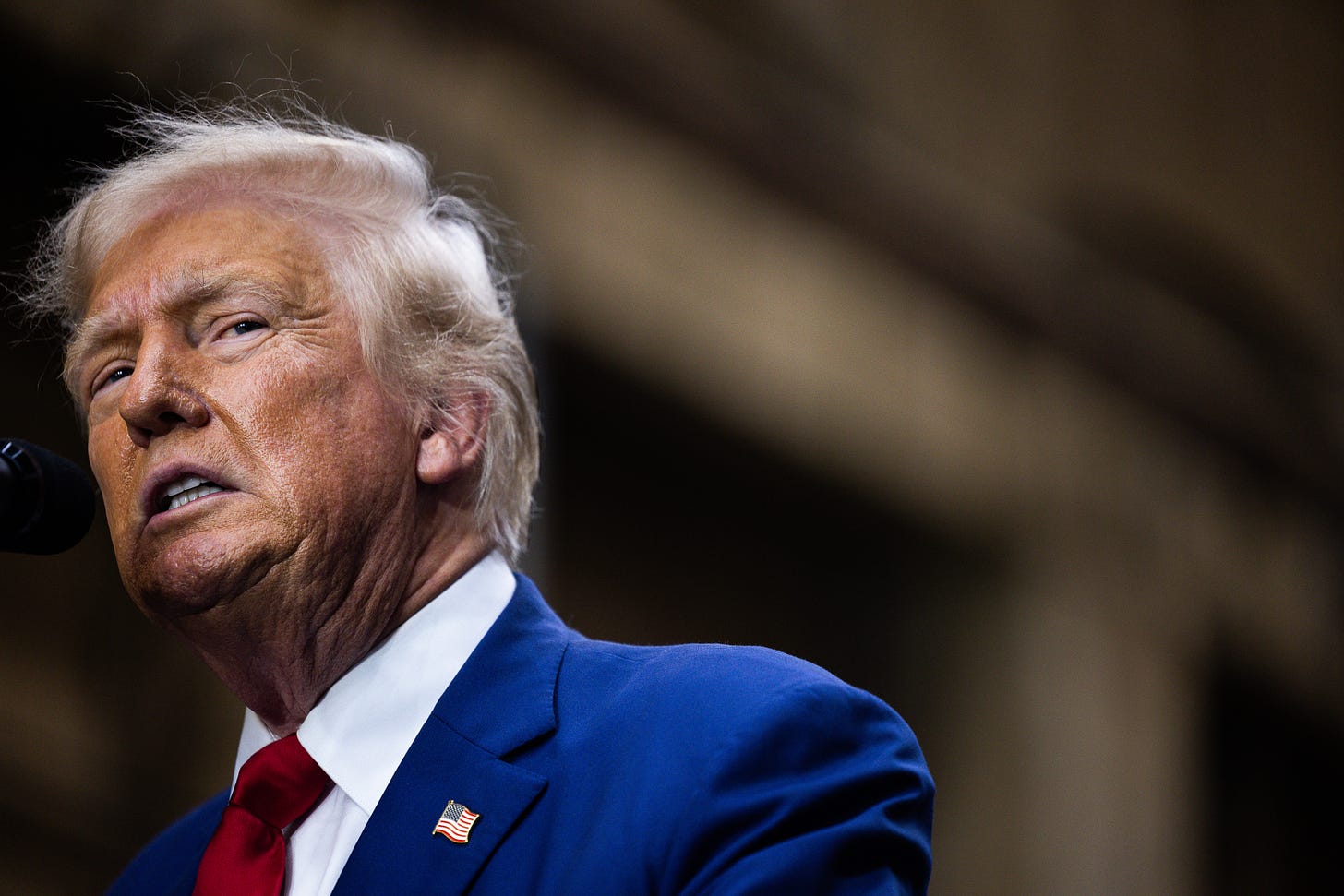
“Fucking Nuts”: New Details on Trump’s 2020 Election Fraud
Just in time for the next election, a new filing from Jack Smith reveals more about how Trump tried to steal the last one.

ON WEDNESDAY, U.S. DISTRICT JUDGE TANYA CHUTKAN unsealed Special Counsel Jack Smith’s 165-page brief outlining his strategy for prosecuting the January 6th case against Donald J. Trump. This comes in the wake of the U.S. Supreme Court’s astonishing ruling in Trump v. U.S. that presidents have criminal immunity under the Constitution for crimes committed using their official power. The filing makes clear that Smith is not backing down on the prosecution, which under his revised indictment contains the same four original counts that prompted the immunity decision in the first place. Smith’s brief reveals new tidbits about Trump’s disturbingly cavalier attitude towards the threat his actions posed to the safety of his vice president, Mike Pence, and to our democracy writ large.
Smith argues that, even though Trump was president on January 6th, “his scheme was fundamentally a private one” as he “acted as a candidate.” This candidate-focused narrative was taken directly from an opinion from the U.S. Court of Appeals for the D.C. Circuit holding that Trump is not immune from civil liability for January 6th—a ruling that is unaffected by Trump, which is a criminal case.
Casting Trump’s actions as private is essential to the viability of the entire indictment—and will guide how future presidents, intent on abusing the power of the office, will frame their actions so as to ensure they get away with their crimes.
In the opinion authored by Chief Justice John Roberts, the Trump majority erected a multitiered test for ascertaining what kinds of evidence can be used in a prosecution of a former president, with “core” acts commanding the greatest protection from criminal oversight, followed by an “outer boundary” of “official acts” that get a presumption of immunity that Smith must overcome by showing, in effect, that a prosecution using such evidence would not somehow chill future presidents’ actions for fear of criminal liability. Each tier of the test laid out by Roberts was disturbingly vague, offering few explicit markers for what constitutes official conduct and none that identified what the Court might consider “unofficial” and thus fair game for prosecutors. Nothing in the test is grounded in the text of the Constitution itself. The so-called “textualists” and “originalists” who comprise the Court’s conservative majority simply made it all up.
Still, Smith painstakingly applies the test to make the case in his brief that the evidence against Trump can one day go before a jury in this case.
Judge Chutkan, rather than being able to make broad legal rulings as to categories of actions that qualify as official versus unofficial, will now have to look at each piece of evidence and make sure it does not have be excluded under the Supreme Court’s vague test. Thus, although Trump v. U.S. stands as a spectacular and gratuitous victory for the former president, the fact that the opinion is making public more details regarding Trump’s bad acts around January 6th might turn out to be bad for Trump the 2024 candidate.
Smith alleges that Trump engaged in three conspiracies: (1) to interfere with the federal government’s function of collecting and counting the election results, (2) to obstruct Congress’s certification of the election results, and (3) to obstruct the rights of millions of Americans to vote and have their votes counted. They all hinge on showing that Trump knew there was no outcome-determinative voter fraud in the election, but that he continued knowingly to make false claims in furtherance of his criminal schemes to illegally thwart the peaceful transfer of power. The brief, which attaches a heavily redacted appendix, is loaded with evidence to prove the prosecution’s case.
Here are a few examples of the information that the brief, even with redactions, lays bare:
When Trump was told by what appears to one of his lawyers that they “would be unable to prove his false fraud allegations in court,” Trump said, “The details don’t matter.”
At one point a White House staffer heard Trump tell a family member, “it doesn’t matter if you won or lost the election. You still have to fight like hell.”
One of Trump’s aides who spoke with him “on a daily basis and had informed him on multiple occasions that various fraud claims were false” wrote in an email: “When our research and campaign legal team can’t back up any of the claims made by our Elite Strike Force Legal Team, you can see why we’re 0-32 on our cases. I’ll obviously hustle to help on all fronts, but it’s tough to own any of this when it’s all just conspiracy shit beamed down from the mothership.”
In mid-December 2020, Trump spoke with Ronna McDaniel (whose name is redacted, but she’s identified as the “RNC Chairwoman”) and asked her to publicize and promote a private report that purported to identify flaws in voting machines used in Antrim County, Michigan. She refused, saying she had talked about the report with the speaker of the Michigan House of Representatives, Lee Chatfield (whose name is also redacted), and conveyed to Trump “this exact assessment: the report was ‘fucking nuts.’”
On the plan to submit a fraudulent slate of electors, which Smith says was Trump’s own idea, the day before the fake slates were to be signed, campaign staff met to decide, according to a text thread, “who wants to put their name on it,” meaning: “Certifying illegal votes.”
When chaos started to erupt at the Capitol, and Trump learned that Pence had been whisked away for his personal protection by the Secret Service, an aide found Trump watching television in the dining room off the Oval Office and alerted him to the situation. “So what?” said Trump.
However Chutkan rules, her decision on what evidence counts as private versus official conduct will be appealed to the D.C. Circuit, and ultimately to the Supreme Court, which holds the ultimate power to decide whether there’s going to be any accountability for criminal presidents under our Constitution.
One of the issues for an appeal is already on the table. Yesterday, Trump’s lawyers filed a brief opposing Smith’s filing to the extent that it would “disseminate witness statements that they previously sought to lock down.” Trump pretended to be concerned that public disclosure could “pose risks to potential witnesses.” The irony here is so thick you need a steak knife to cut it, as poll workers across the country ramp up safety measures in the face of threats to their safety by MAGA election deniers. As to those folks, Trump could not care less. As he might put it: “So what?”
















